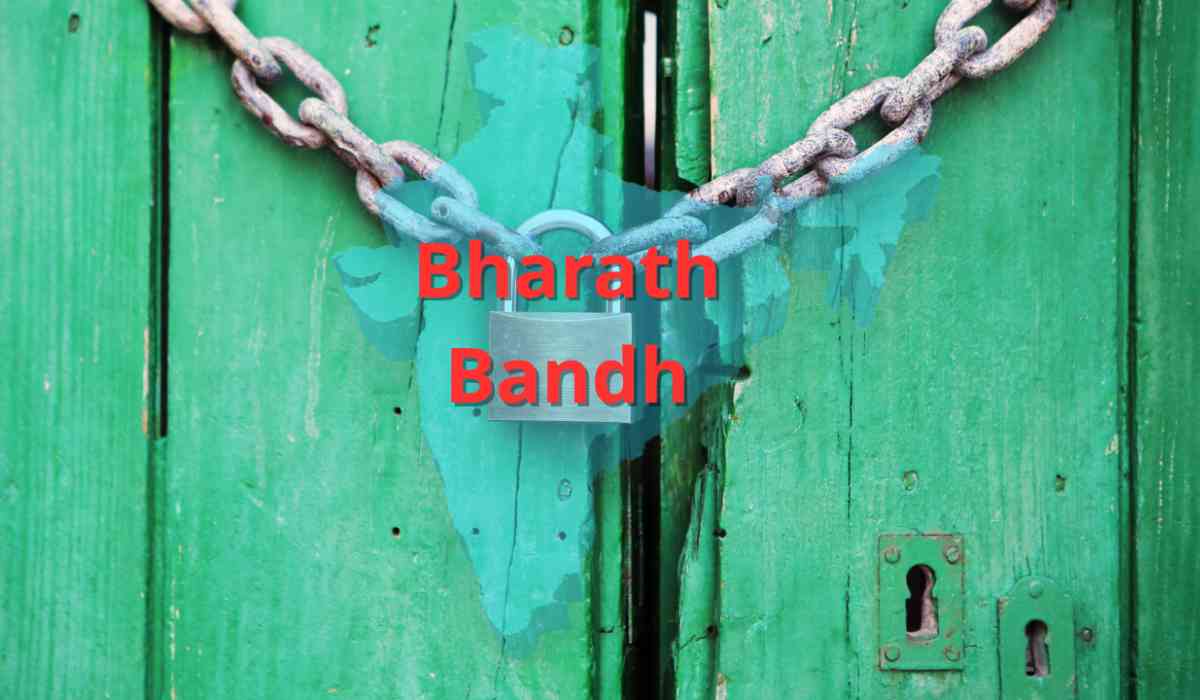India is witnessing one of its largest nationwide general strikes today, July 9, 2025, as over 25 crore workers from both the formal and informal sectors participate in a Bharat Bandh called by a united forum of 10 central trade unions, along with farmers' associations and rural labour organisations. This mass mobilisation is aimed at pushing back against what protestors call “anti-worker, anti-farmer, and pro-corporate” policies pursued by the central government.
The Bharat Bandh, although not an officially declared holiday, is significantly affecting daily life across the country. It has disrupted multiple essential services, including banking, transportation, postal services, coal mining, and public sector operations, and has prompted widespread protests in both urban and rural areas.
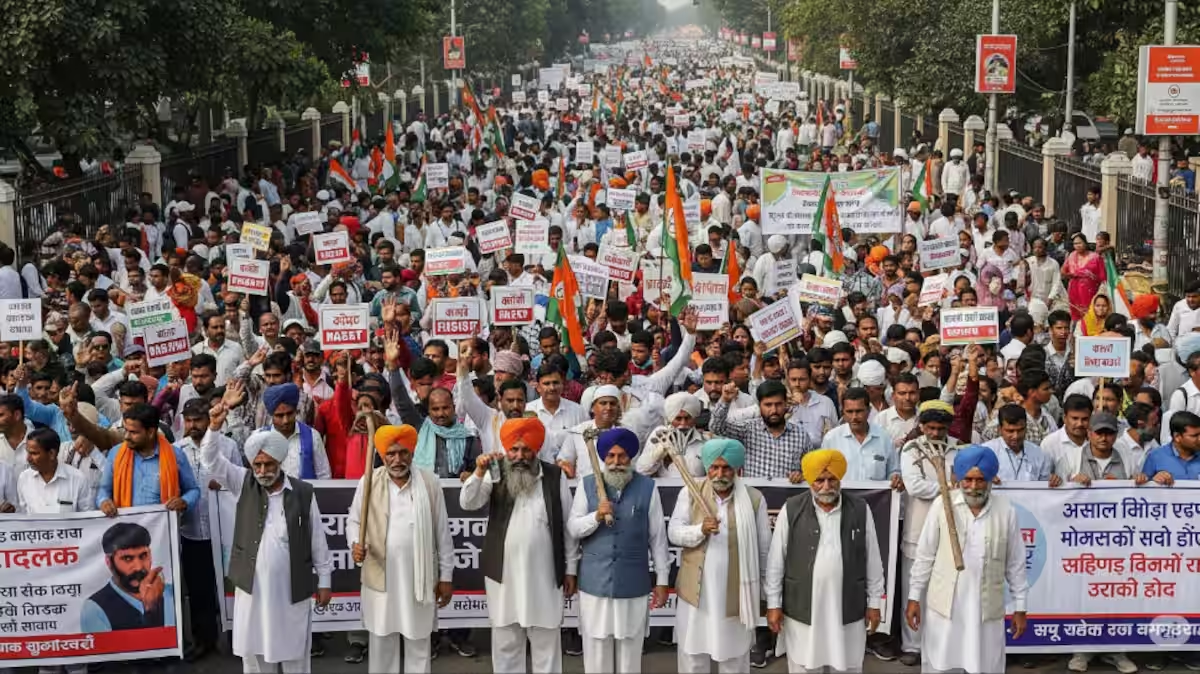
Why Is There a Bharat Bandh?
The strike stems from growing frustration over a series of government decisions and policies that the trade unions claim are detrimental to workers, farmers, and the middle and lower-income classes. At the heart of the protest lies opposition to the following:
-
Privatisation of public sector enterprises and public services
-
Outsourcing, contract-based hiring, and casualisation of labour
-
Implementation of four controversial labour codes
-
Rising unemployment, stagnant wages, and inflation
-
Cuts in public spending on healthcare, education, and essential civic amenities
According to the joint forum of trade unions, the government’s push toward labour deregulation, its refusal to conduct the Annual Labour Conference for over a decade, and its preference for policies like the Employment Linked Incentive (ELI) scheme — which they argue benefit corporations over workers — have only deepened the workforce's concerns.
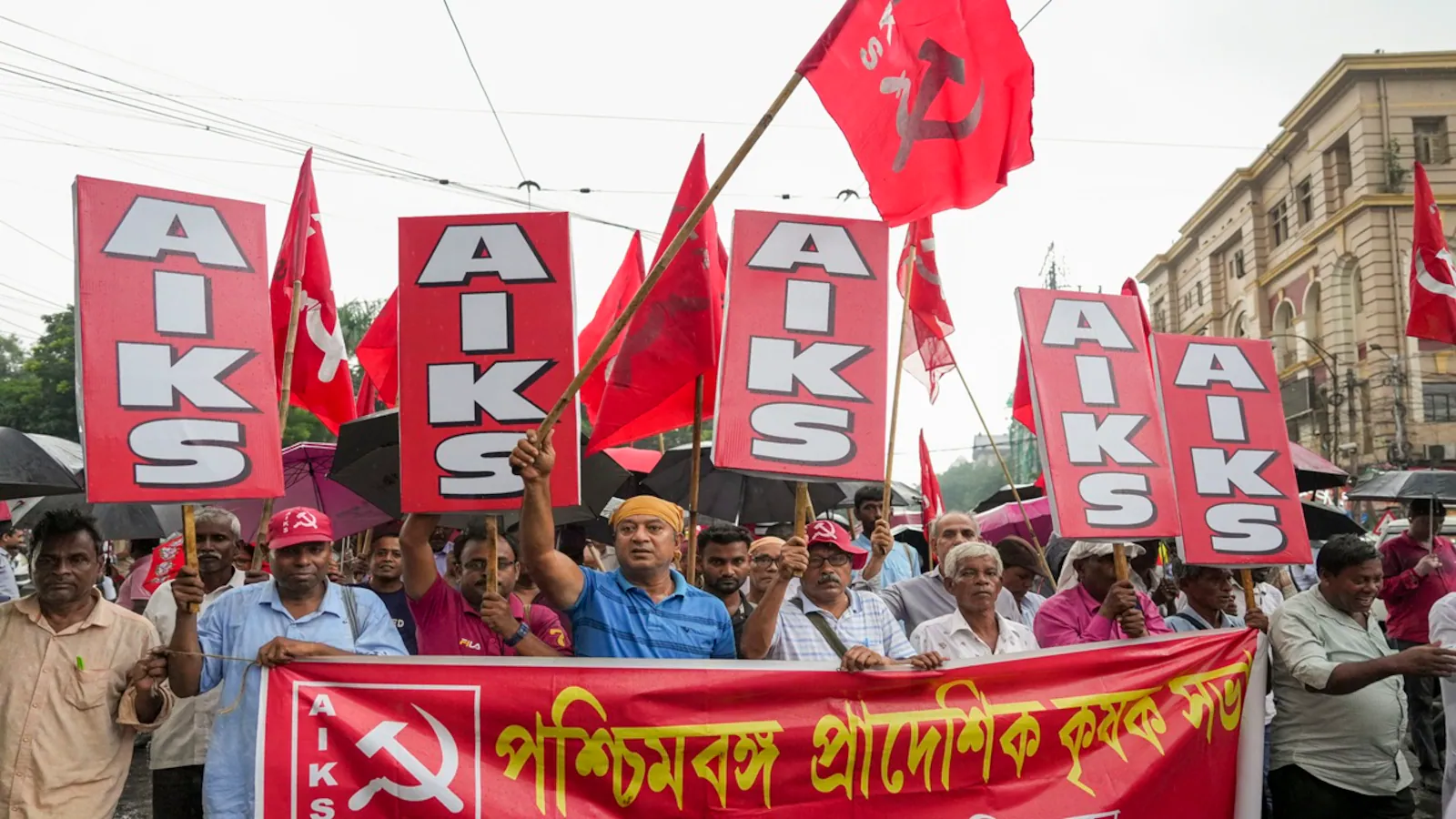
Who Is Participating?
The protest is being led by a coalition of major trade unions, including:
-
All India Trade Union Congress (AITUC)
-
Indian National Trade Union Congress (INTUC)
-
Hind Mazdoor Sabha (HMS)
-
Centre of Indian Trade Unions (CITU)
-
All India United Trade Union Centre (AIUTUC)
-
Trade Union Coordination Centre (TUCC)
-
Self Employed Women’s Association (SEWA)
-
All India Central Council of Trade Unions (AICCTU)
-
Labour Progressive Federation (LPF)
-
United Trade Union Congress (UTUC)
Additionally, the Samyukta Kisan Morcha and other agricultural labour groups have extended strong support, organizing massive rural mobilisations across the country.
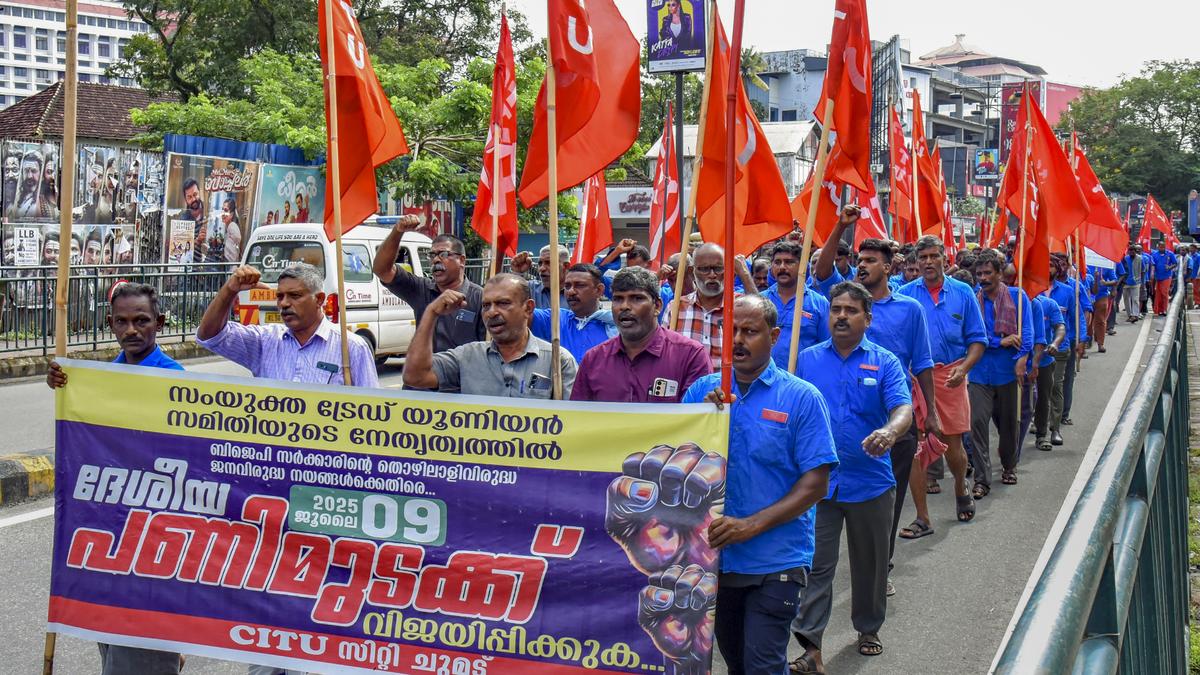
What Are the Workers’ Demands?
A comprehensive 17-point charter of demands was previously submitted to Labour Minister Mansukh Mandaviya, which includes:
-
Addressing unemployment and filling sanctioned vacant posts
-
Creating new job opportunities, especially for youth
-
Opposing the hiring of retired personnel over young professionals in public sector units like Railways, NMDC Ltd, Steel, and Education
-
Strengthening MGNREGA by increasing workdays and pay
-
Introducing a similar employment guarantee scheme for urban areas
-
Rolling back the four labour codes, which allegedly restrict:
-
The right to collective bargaining
-
The right to strike
-
Protection against longer working hours
-
Labour law enforcement, by decriminalising employer violations
-
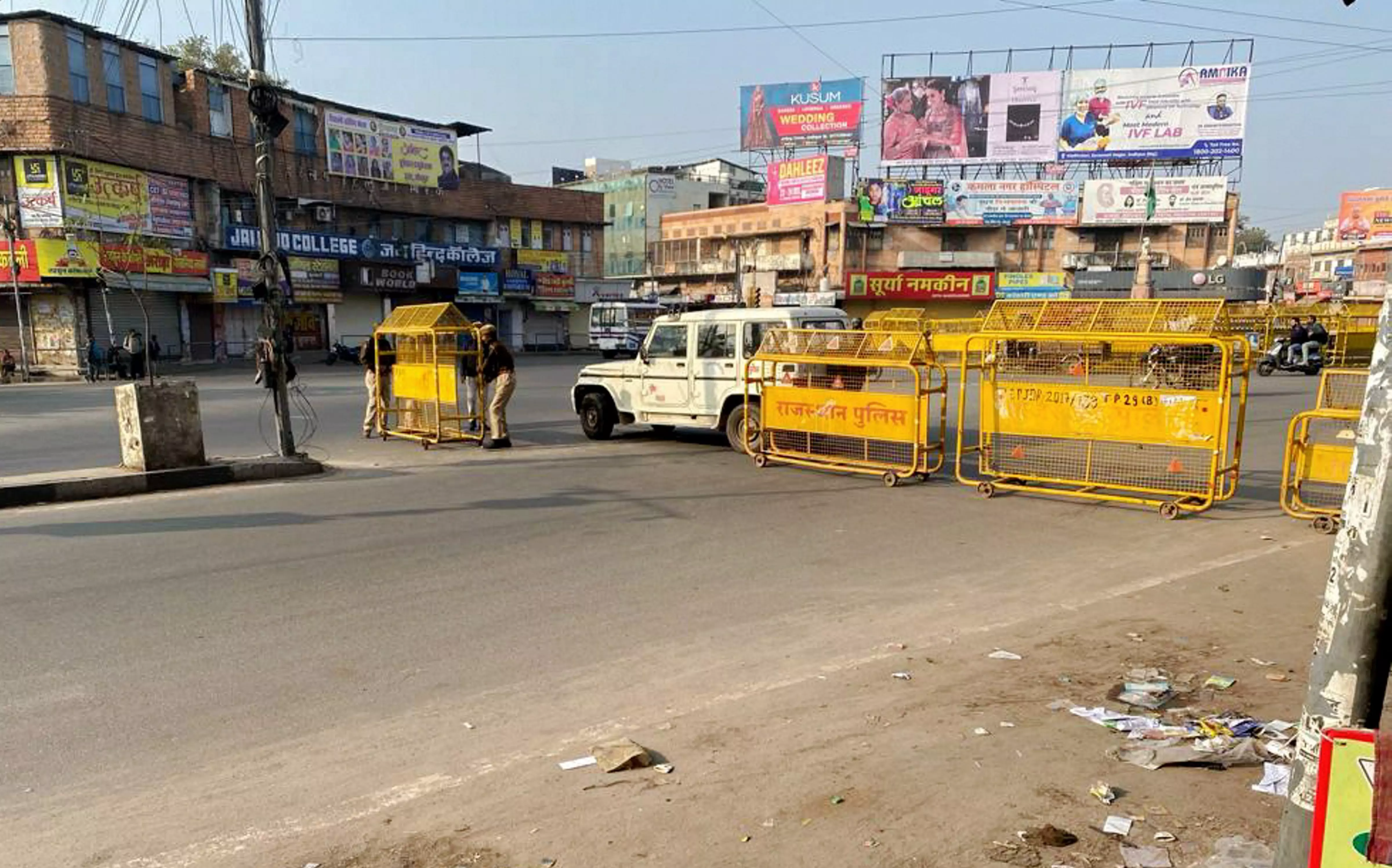
Which Sectors Are Affected?
The Bharat Bandh has touched nearly every corner of the economy, causing widespread disruption in key sectors:
1. Banking and Financial Services
Public sector and cooperative banks are either shut or severely impacted. The All India Bank Employees Association (AIBEA), along with the Bengal Provincial Bank Employees Association, have confirmed their participation. Insurance services are also part of the strike.
2. Postal Services
Postal operations across India have slowed down significantly as unionised staff join the protest.
3. Public Transport
State-run bus services, taxis, and even app-based cabs have been affected in several cities. Road demonstrations and protest marches are contributing to local traffic disruptions, diversions, and longer commute times.
4. Coal Mining and Public Sector Enterprises
Workers from coal mines, NMDC, and other non-coal mineral sectors have joined in. Union notices were also served by employees from state government departments and other PSUs.
5. Railways and Metro
While railway unions have not officially declared a strike, operations may still face delays due to protests and roadblocks around stations. Metro and air travel services are expected to operate normally.
6. Schools, Colleges & Offices
Most educational institutions and private offices are open. However, attendance might be affected due to transport issues and the public mood of disruption.
7. Shops and Markets
Retailers and local vendors may remain open, but footfall is expected to drop significantly depending on local conditions and participation levels.
8. Essential Services
Hospitals, pharmacies, and utilities (such as electricity and water supply) are functioning as usual. Emergency services have not been disrupted.
The Bigger Picture: Youth Unemployment and Economic Inequality
The protest comes at a time when India’s youth are facing an unemployment crisis. With 65% of the population under 35, and the highest joblessness seen among those aged 20–25, the trade unions argue that current economic policies fail to offer viable job prospects for the country’s emerging workforce.
Further exacerbating the issue are rising prices of essentials, stagnant wages, and cuts to public sector investments, which are pushing both lower-income families and the middle class into deeper economic distress.
Previous Strikes and the Government's Silence
This is not the first such protest. Similar nationwide strikes were held on:
-
November 26, 2020
-
March 28–29, 2022
-
February 16, 2024
Despite repeated mobilisations, trade union leaders say that the government has largely remained unresponsive to their concerns.
Final Thoughts
The Bharat Bandh on July 9, 2025, is more than just a strike — it’s a reflection of the deepening crisis in India’s labour ecosystem. With over 25 crore voices unified across sectors, the message is clear: workers and farmers are demanding a seat at the table, a reversal of what they see as exploitative policies, and a commitment to building an economy that works for everyone — not just corporations.
Whether this mass movement results in substantive policy changes remains to be seen, but one thing is undeniable: the Indian workforce is no longer willing to stay silent.
With inputs from agencies
Image Source: Multiple agencies
© Copyright 2025. All Rights Reserved Powered by Vygr Media.

